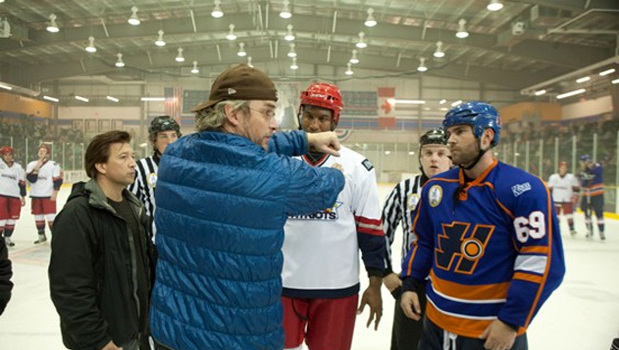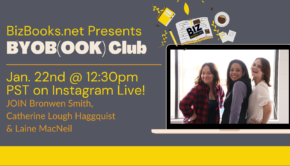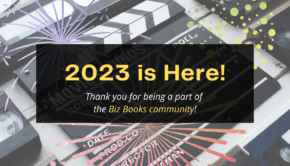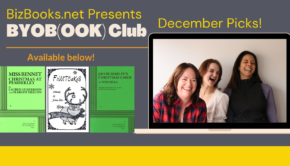The Biz Interview: Michael Dowse – Director of Goon
Goon is now playing in theatres everywhere (check it out!) and last week, we had the chance to speak with director Michael Dowse. He spoke in depth about his creative process for the film and the challenges that come with adapting a true story (and a book) for film.
Can you briefly walk us through your creative process for the production from the early stages of your involvement all the way to the film’s release?
Well, I met Jay Baruchel. I wanted to work with him on another project that I was doing… We both lived in Montreal and he told me about this project and gave me the script and as soon as I read it, I said I wanted to do it. I’m a big hockey fan. I never really was dying to make a hockey film, but once the opportunity presented itself, I really wanted to do it because there’s so many bad hockey movies out there… I felt like I really wanted to make a good solid hockey film that was authentic and showed the game and was funny.
So we started developing the script even more, did a couple more drafts, which was great working with Evan Goldberg and Jay, very collaborative, good experience in that Jay would come to Montreal and Evan and his team would come to Montreal, and we’d just sit around and sort of brainstorm.
So we got the script into shape and then next would be getting Seann William Scott on board. So with Seann, Evan had met with him and had told him about the project and he was very interested. The thing with Seann is that a lot of people think of only Stifler. He’s a bit of a victim of his own success, but he has much more range as an actor. You look at films like The Promotion or Southland Tales, he’s shown a lot more range than people give him credit for. So I went down to L.A… Seann came in to meet us and it was one of those great experiences where like 20 seconds into the meeting, you’re like, “This is the guy” – and everybody felt the same way… When Jay first suggested him to me, I had the Stifler thing in my head, and I had the buff Seann William Scott that most people think of, but he was willing to put on weight. He wasn’t working at the time, so he was a little bit heavier than you’d normally think of him. He wasn’t in fighting shape, so to speak, and he was just perfect.
We started prep in Winnipeg in September 2010. And then the rest of the cast – Alison Pill came on board, Liev Schreiber came on board, Eugene Levy – we were able to put together a really good cast. Then, the shooting was a crazy experience. Shooting a hockey film in hockey season is challenging because ice time is at a premium. So it dictated a really crazy schedule where we shot all the hockey stuff between 11PM and 11AM… There’s graveyard and then there’s this, which is sort of a quasi-graveyard morning shift… To me, that was one of the main challenges – trying to do that… The shoot was fun. Shooting on ice – people might think it’s complicated but it’s actually like a giant dolly track with a giant bounceboard underneath it, so it’s fun. For me, it’s like I got to fulfill this lifelong fantasy of being a hockey coach, where I get to do tryouts and farm a team and design hockey plays – like an x and o and out on the board and show it to the hockey players. So that was really fun. Being able to direct on skates is pretty cool – you’re slamming your stick and you’re like, “No, you’ve gotta go like this and go like that”. It’s fun.
What I wanted to do was capture the hockey authentically and capture the speed of the game and that’s where I think other films have faltered. You don’t really get a sense of how fast the game is. That’s what I think makes hockey so great is the speed, so we had some golden rules, which (were) never do anything that would impede how fast the game could play – ie. Putting a camera in front of a player. Anything where the infrastructure of making a film got in the way of a hockey play was nixed. It just wouldn’t work out. The shooting was tough, but it was great. All the actors really worked their asses off to get into skating shape and re-learn how to skate again so they looked realistic. The fights were really challenging but really exciting to shoot. They took careful planning, but for me, it was a real learning experience because I haven’t really done many fight scenes like that. I knew what I wanted to do, which was good, but knowing what you want to do and actually pulling it off – when you’re dealing with safety issues and stuff like that – there’s a bit of a learning curve there.
So the shoot went great and the edit was fantastic. I mean, that’s really it in terms of the production, and then we released it at the Toronto International Film Festival.
Goon is a true story that’s based on a book. How do you bridge the gap between staying true to the facts of the story and the need to add your own creative elements to make a complete film?
I think anytime you adapt a book, you need to make it a film. I’ve adapted books and it’s exactly what you say. It’s finding that bridge between making a book a great film and it’s a really hard thing to do. It’s about having the balls to step beyond what the book is and make it a visual thing and be tough with the book as well, because a book can be so internal. You don’t have that luxury in a film.
Are there any books or specific authors that have been influential to you?
I really like comedy books. I mean I grew up reading Adrian Mole books… Kurt Vonnegut, I really loved. Terry Southern was my all-time favourite author. Blue Movie is probably my favourite book of all-time.
What advice would you give to someone who wants to get into film directing?
Start editing is what I would say. I started as an assistant editor and I think the best place to learn is in the edit suite. I think that’s probably the fatal flaw of most first-time directors is that they don’t spend enough time in the edit suite. They don’t understand coverage and they don’t understand what you need to shoot in order to make a scene complete. So that would be my main advice.
Any other projects that you want to mention that you have coming up?
The next one is called The F Word, which I’ll be doing, which is completely different from this film. That’s a romantic comedy but it’s based on a play by a Vancouver playwright, actually. We’re going to shoot it this summer, so it will probably come out next year.
Goon is now playing in theatres.















